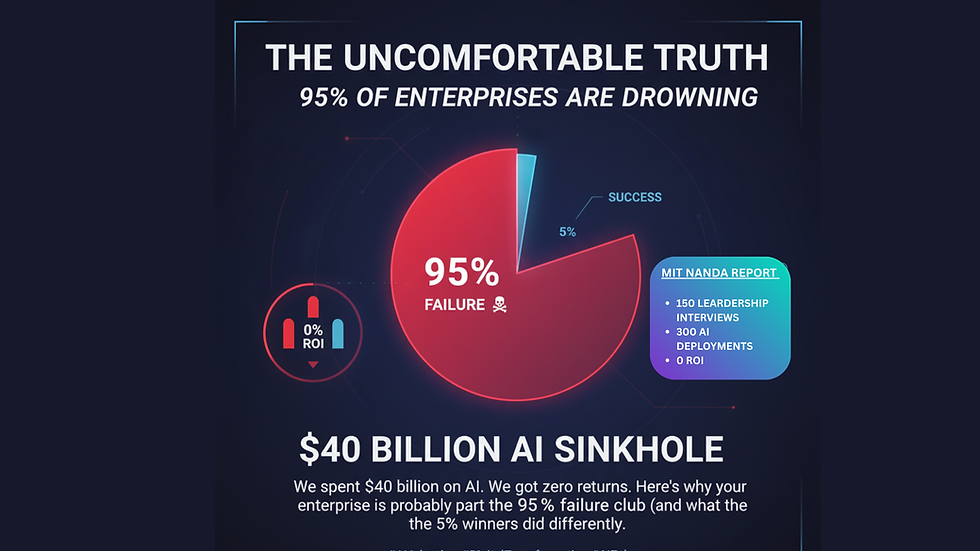AI Agents: The New Guardians of Enterprise Knowledge
- Upinder Singh
- May 25
- 2 min read
Updated: Jun 25

We're having more and more conversations with IT and executive officers these days, and a consistent theme emerges: the intense focus on implementing generative AI. Everyone is eager to harness its power, often asking for our help in developing their strategic plans. Amidst this excitement, a familiar pain point keeps resurfacing – the relentless and continuous drain of enterprise knowledge.
Think about it. How much critical information walks out the door every time an experienced employee leaves? How many best practices remain undocumented, locked away in individual inboxes or tacit understanding? This "knowledge drain" is a silent but persistent hemorrhage, continuously hurting enterprises by:
Slowing down onboarding: New hires struggle to find the information they need, leading to a longer ramp-up time and reduced initial productivity.
Increasing errors and inconsistencies: Without readily accessible knowledge, teams can make mistakes or deviate from established procedures.
Hindering innovation: When knowledge isn't easily discoverable, it's harder to build upon existing insights and identify new opportunities.
Creating reliance on specific individuals: The loss of a key employee can create significant operational gaps.
Enter AI Agents: Intelligent Knowledge Navigators
This is where the promise of AI Agents becomes truly compelling. While generative AI can create new content, AI Agents can act as intelligent intermediaries, proactively managing and leveraging existing knowledge in powerful new ways. Imagine agents that can:
Intelligently index and organize vast repositories of information: Going beyond simple keyword searches to understand context and relationships between documents, databases, and even conversations.
Proactively surface relevant knowledge: Instead of users having to search, agents can anticipate their needs and provide timely information based on their tasks or ongoing projects.
Facilitate knowledge sharing and collaboration: Connecting individuals with the right expertise and making it easier to share insights across teams.
Automate knowledge-intensive tasks: Answering common questions, guiding users through processes, and even generating summaries of complex information.
Moving Beyond Reactive Knowledge Management
Traditional knowledge management often feels reactive – a repository where information goes to (sometimes) be found. AI Agents offer a paradigm shift towards a more proactive and integrated approach. They can weave knowledge directly into workflows, making it a living, breathing part of daily operations.
The Path Forward: Integrating AI Agents into Your Knowledge Strategy
As you develop your generative AI executive plan, don't overlook the critical role of AI Agents in bolstering your knowledge management strategy. Consider how these intelligent assistants can help you:
Identify and capture critical knowledge: Leverage AI to identify knowledge gaps and facilitate the documentation of undocumented expertise.
Improve knowledge accessibility and discoverability: Implement AI-powered search and recommendation systems.
Enhance employee productivity and decision-making: Equip your teams with AI Agents that can provide the right information at the right time.
The combination of generative AI's creative power and AI Agents' intelligent navigation of knowledge holds immense potential to not only mitigate knowledge drain but to actively transform how enterprises learn, adapt, and thrive.




Comments